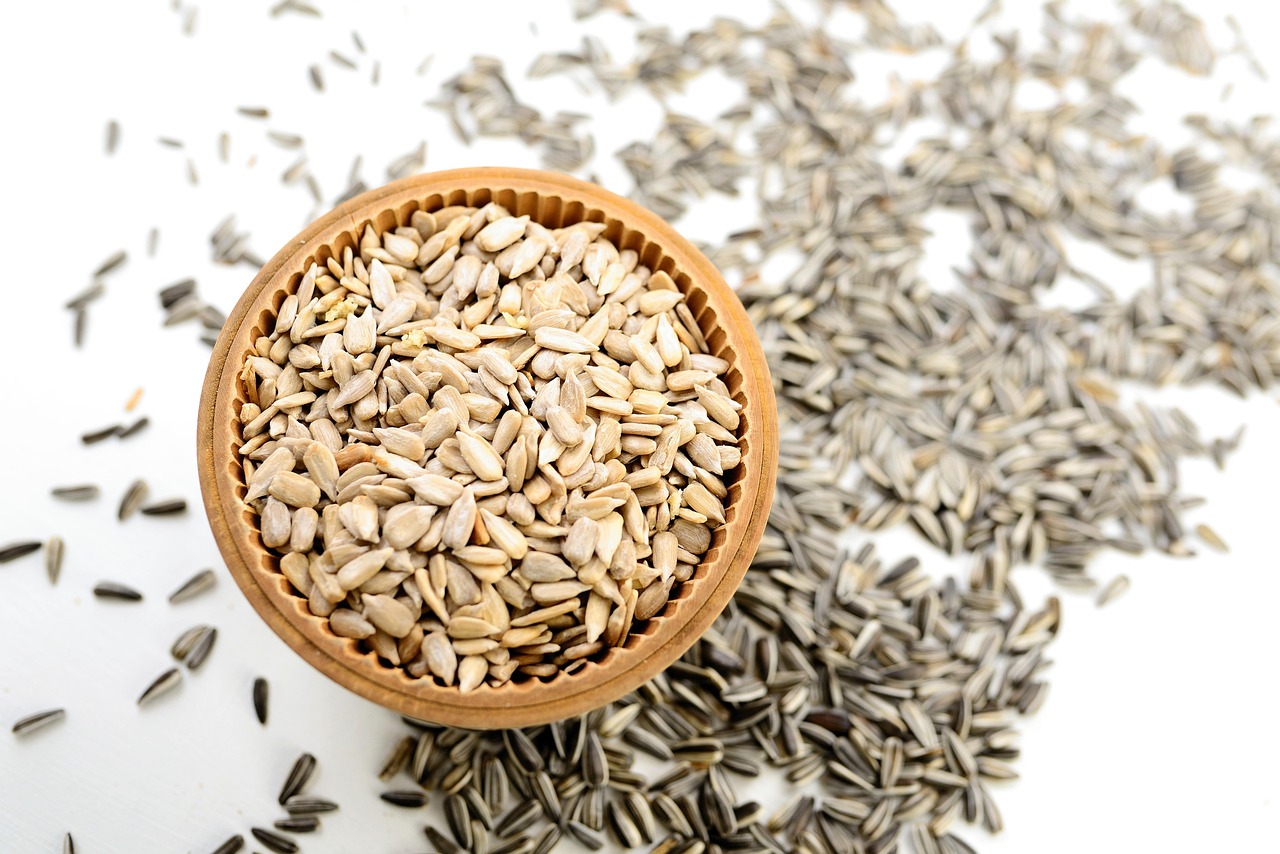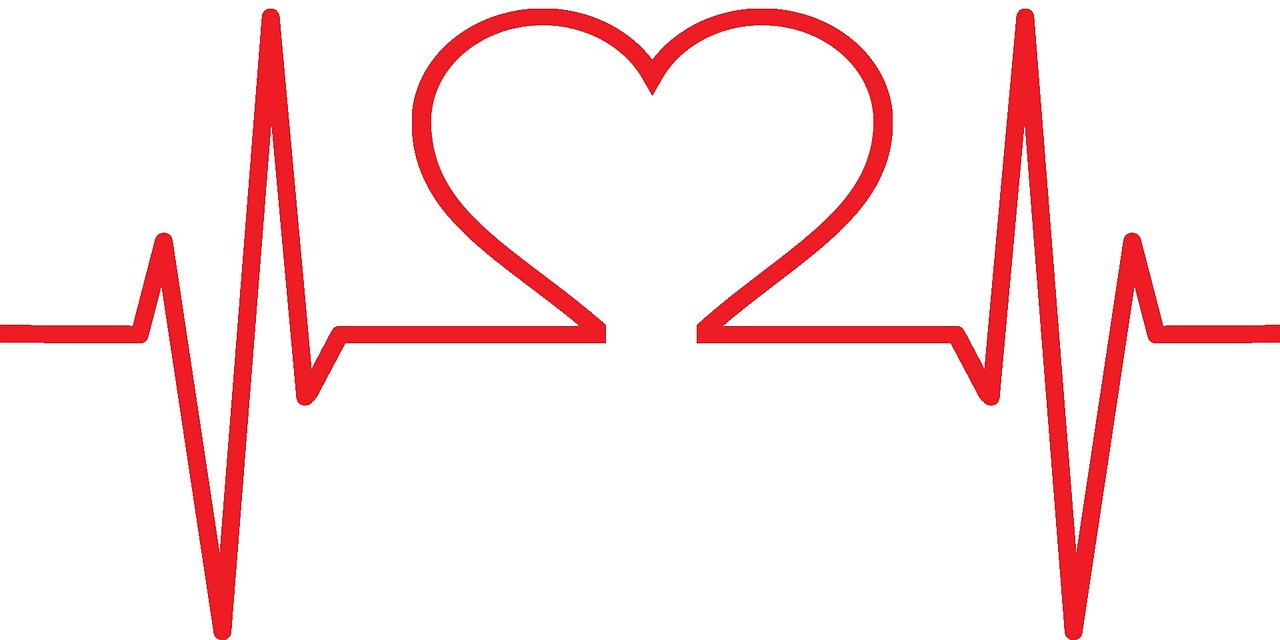This article delves into the significance of boron for maintaining and improving bone health, examining its benefits, sources, and the latest scientific findings on its role in skeletal integrity.
The Importance of Boron for Bone Health
Boron is an essential trace mineral that significantly impacts bone health. It supports mineral metabolism, enhances calcium absorption, and improves bone density. Understanding its role is crucial for overall skeletal wellness.
How Boron Affects Bone Density
Research indicates that boron positively influences bone density by regulating calcium and magnesium levels. This section explores the mechanisms through which boron contributes to stronger bones.
- Calcium and Magnesium Regulation: Boron plays a key role in regulating calcium and magnesium levels, which are vital for maintaining bone structure.
- The Role of Calcium: Calcium is a primary component of bone tissue, and boron enhances its absorption, promoting bone strength.
- The Role of Magnesium: Magnesium is essential for bone formation, and boron aids in its metabolism, influencing skeletal health.
Enhancing Bone Mineralization
Boron enhances the process of bone mineralization, which is crucial for developing strong bones. This mineralization is essential for overall skeletal integrity.
Dietary Sources of Boron
Identifying dietary sources of boron is crucial for those looking to improve their bone health. Various foods rich in boron can be incorporated into your diet:
- Fruits and Vegetables: Certain fruits and vegetables are excellent sources of boron, such as avocados, apples, and carrots.
- Nuts and Legumes: Nuts, particularly almonds and walnuts, along with legumes like lentils, are significant sources of boron.
Scientific Studies on Boron and Bone Health
Numerous studies have investigated the impact of boron on bone health. Key research findings support the mineral’s role in preventing osteoporosis and promoting skeletal integrity.
- Clinical Trials and Results: Clinical trials have provided valuable insights into boron’s effects on bone health, showing promising results in various populations.
- Long-Term Benefits of Boron Supplementation: Consistent boron intake may yield various benefits for bone health, including reduced risk of fractures.
Potential Risks and Considerations
While boron has many benefits, understanding potential risks associated with excessive intake is essential. Safe consumption levels should be considered, along with:
- Recommended Daily Allowance: The RDA for boron is crucial for safe consumption, and factors influencing individual needs should be understood.
- Signs of Boron Deficiency: Recognizing the signs of boron deficiency can help individuals address their bone health effectively.
Conclusion: The Future of Boron Research in Bone Health
As research continues to evolve, the future of boron in bone health looks promising. The importance of boron in maintaining skeletal well-being encourages further exploration into its benefits.

The Importance of Boron for Bone Health
Boron is a vital trace mineral that significantly contributes to bone health. Its role in the body is multifaceted, particularly in the metabolism of essential minerals, which are crucial for maintaining strong and healthy bones. This article explores the importance of boron, its mechanisms in enhancing bone density, and dietary sources to ensure adequate intake.
The significance of boron cannot be overstated, as it aids in the regulation of calcium and magnesium levels, two minerals that are foundational for skeletal integrity. By enhancing the body’s ability to absorb these minerals, boron plays a pivotal role in improving overall bone density.
Research indicates that boron positively influences bone density by regulating calcium and magnesium levels. This regulation is crucial because both minerals work synergistically to support bone structure. A deficiency in either can lead to weakened bones, making it essential to understand how boron facilitates their absorption and utilization.
Boron helps in the regulation of calcium and magnesium levels in the body. Calcium is a primary component of bone tissue, and boron enhances its absorption, ensuring that bones remain strong and resilient. Meanwhile, magnesium plays a vital role in bone formation, and boron aids in its metabolism, further reinforcing the skeletal framework.
Another significant aspect of boron’s role in bone health is its ability to enhance bone mineralization. This process is essential for developing strong bones and preventing conditions like osteoporosis. By promoting effective mineralization, boron contributes to the overall strength and durability of the skeletal system.
To maintain optimal bone health, it is crucial to incorporate dietary sources of boron into your meals. Foods rich in boron include:
- Fruits: Apples, pears, and grapes
- Vegetables: Avocados, carrots, and broccoli
- Nuts: Almonds and hazelnuts
- Legumes: Beans and lentils
Including these foods in your diet can help ensure adequate boron intake, supporting your bone health effectively.
In conclusion, boron is an essential mineral that plays a significant role in bone health by enhancing mineral metabolism, improving calcium absorption, and promoting bone density. Understanding its importance and ensuring sufficient dietary intake can lead to better skeletal wellness.

How Boron Affects Bone Density
Research has shown that boron plays a pivotal role in enhancing bone density by facilitating the regulation of essential minerals such as calcium and magnesium. These minerals are crucial for maintaining strong and healthy bones. In this section, we will explore the various mechanisms through which boron contributes to improved bone strength and density.
Understanding the Mechanisms
- Mineral Metabolism: Boron significantly influences the metabolism of calcium and magnesium, ensuring that these minerals are effectively utilized in the body. This process is vital for maintaining the structural integrity of bones.
- Calcium Absorption: Boron enhances the absorption of calcium from the digestive tract. Studies indicate that adequate boron levels can lead to increased calcium retention, which is essential for bone mineralization.
- Magnesium’s Role: Magnesium is another critical mineral for bone health. Boron aids in the metabolism of magnesium, which helps in the formation of bone tissue and the regulation of calcium levels.
The Interplay of Calcium and Magnesium
The relationship between calcium and magnesium is complex yet essential for bone density. Boron acts as a facilitator in this relationship, ensuring that both minerals work synergistically to promote bone health. Without adequate boron, the balance of these minerals can become disrupted, potentially leading to weakened bones.
Enhancing Bone Mineralization
Boron has been shown to enhance the process of bone mineralization, which is critical for developing robust bones. This mineralization process involves the deposition of minerals in the bone matrix, and boron’s role in this process cannot be overstated. By promoting effective mineralization, boron contributes to the overall strength and resilience of bones.
In conclusion, boron is an essential trace mineral that significantly impacts bone density through its regulation of calcium and magnesium levels, enhancing mineralization processes and ultimately leading to stronger bones. Understanding the role of boron in bone health is crucial for anyone looking to maintain or improve their skeletal integrity.
Calcium and Magnesium Regulation
is a vital process in maintaining optimal bone health. Understanding how boron influences the levels of these essential minerals can significantly enhance our approach to supporting skeletal integrity.
Boron is known to play a crucial role in the metabolism of minerals, particularly calcium and magnesium, which are fundamental to bone structure and strength. Calcium is the primary building block of bones, while magnesium contributes to bone formation and maintenance. When these minerals are in balance, they work synergistically to promote healthy bones.
Recent studies suggest that boron enhances the absorption of calcium in the intestines, leading to increased levels of this mineral in the bloodstream. This is particularly important because adequate calcium levels are necessary for maintaining bone density and preventing conditions such as osteoporosis. Furthermore, boron’s role in regulating magnesium levels is equally significant. Magnesium not only aids in the conversion of vitamin D into its active form but also helps in the proper utilization of calcium. Without sufficient magnesium, the body may struggle to maintain healthy bone structure.
- Enhanced Calcium Absorption: Boron improves the efficiency of calcium absorption, ensuring that bones receive adequate calcium for strength.
- Magnesium Metabolism: Boron assists in the metabolism of magnesium, which is vital for bone mineralization.
- Prevention of Mineral Deficiency: By regulating these minerals, boron helps prevent deficiencies that could compromise bone health.
In conclusion, the regulation of calcium and magnesium by boron is essential for maintaining strong bones. By ensuring that these minerals are balanced and properly utilized, boron contributes significantly to overall skeletal health. Incorporating boron-rich foods into your diet can be a simple yet effective strategy to support your bones.
The Role of Calcium
Calcium is a crucial mineral that serves as a primary component of bone tissue, playing a vital role in maintaining overall bone strength and integrity. It is essential for various physiological functions, including muscle contraction, nerve transmission, and blood coagulation. However, the effectiveness of calcium in promoting bone health can be significantly enhanced by the presence of other minerals, particularly boron.
Boron is often overlooked but is gaining recognition for its ability to improve calcium absorption in the body. This means that not only does calcium contribute to the structural framework of bones, but its efficacy is also dependent on the presence of boron, which facilitates its uptake and utilization. Research has shown that boron can help regulate the metabolism of calcium, thereby enhancing its bioavailability and effectiveness in promoting bone density.
Furthermore, boron contributes to the maintenance of optimal levels of other essential minerals, such as magnesium, which also plays a significant role in bone health. A balanced intake of calcium, magnesium, and boron can lead to improved bone mineralization and density, reducing the risk of conditions such as osteoporosis.
Incorporating foods rich in both calcium and boron into your diet can be beneficial. Some excellent sources of calcium include dairy products, leafy greens, and fortified foods, while boron can be found in fruits, vegetables, nuts, and legumes. A well-rounded diet that includes these foods can support overall skeletal health.
Ultimately, understanding the interplay between calcium and boron is crucial for anyone looking to enhance their bone health. By ensuring adequate intake of these minerals, individuals can promote stronger bones and reduce the likelihood of bone-related health issues.
The Role of Magnesium
The Role of Magnesium in Bone Health
Magnesium is a crucial mineral that plays a significant role in maintaining healthy bones. It is involved in over 300 biochemical reactions in the body, including those that support bone structure and integrity. Understanding how magnesium contributes to bone health can help individuals make informed dietary choices to promote skeletal wellness.
Magnesium’s Contribution to Bone Formation
Magnesium is essential for the formation of bone tissue. It works in conjunction with calcium and vitamin D to build and maintain strong bones. This mineral helps in the conversion of vitamin D into its active form, which in turn enhances calcium absorption in the intestines. Without adequate magnesium levels, the body may struggle to utilize calcium effectively, potentially leading to weakened bones.
Interaction with Other Minerals
The relationship between magnesium and other minerals, particularly calcium and boron, is vital for optimal bone health. Magnesium helps regulate calcium levels in the body, ensuring that calcium is deposited in the bones rather than in soft tissues. This regulation is crucial for preventing conditions such as osteoporosis, where bones become fragile and more susceptible to fractures.
Enhancing Bone Mineral Density
Research has shown that higher magnesium intake is associated with increased bone mineral density. Studies suggest that magnesium deficiency can lead to a decrease in bone density, making bones more fragile. Therefore, ensuring adequate magnesium intake through diet or supplements can be a proactive step in maintaining bone strength.
Dietary Sources of Magnesium
To support bone health, individuals should consider incorporating magnesium-rich foods into their diets. Some excellent sources of magnesium include:
- Leafy green vegetables (e.g., spinach, kale)
- Nuts and seeds (e.g., almonds, pumpkin seeds)
- Whole grains (e.g., brown rice, quinoa)
- Legumes (e.g., black beans, lentils)
- Fatty fish (e.g., salmon, mackerel)
Conclusion
In summary, magnesium is a vital mineral for bone health, playing a key role in bone formation, mineral density, and the regulation of calcium levels. Ensuring sufficient magnesium intake is essential for maintaining strong and healthy bones, making it an important aspect of overall skeletal wellness.
Enhancing Bone Mineralization
Boron plays a vital role in the enhancement of bone mineralization, a process that is crucial for developing and maintaining strong bones. Mineralization refers to the deposition of minerals, primarily calcium and phosphorus, into the bone matrix, which strengthens the bones and increases their density. Without adequate mineralization, bones can become weak and susceptible to fractures.
Research has demonstrated that boron significantly contributes to this process by facilitating the absorption of essential minerals. When boron is present in the body, it aids in the regulation of calcium and magnesium, two key minerals that are integral to bone health. Boron enhances the body’s ability to utilize these minerals effectively, ensuring that they are deposited into the bones where they are needed most.
Furthermore, boron has been shown to influence the activity of certain hormones, such as estrogen and testosterone, which are critical for bone density. These hormones help to maintain bone strength and integrity, especially in individuals at risk of osteoporosis.
In addition to its hormonal effects, boron also promotes the production of osteoblasts, the cells responsible for bone formation. This stimulation of osteoblast activity leads to increased bone density and a lower risk of fractures. As a result, adequate boron intake is essential for individuals of all ages, particularly those at higher risk of bone-related diseases.
In conclusion, boron’s role in enhancing bone mineralization cannot be overstated. By improving the absorption of vital minerals and supporting hormonal balance, boron contributes significantly to maintaining strong and healthy bones. Ensuring sufficient boron intake through diet or supplements may be a beneficial strategy for promoting overall bone health.

Dietary Sources of Boron
Identifying dietary sources of boron is crucial for those looking to improve their bone health. This section outlines various foods rich in boron and provides practical tips on how to incorporate them into your diet effectively.
Boron is found in a variety of foods, and consuming a diverse diet can help ensure adequate intake. Here are some key sources:
- Fruits: Many fruits are excellent sources of boron. Notable options include:
- Avocados – Rich in healthy fats and boron.
- Apples – A convenient snack that provides a good amount of boron.
- Peaches – Juicy and delicious, peaches also contribute to boron intake.
- Pears – Another tasty fruit that can help boost your boron levels.
- Vegetables: Incorporating vegetables into your meals can also enhance your boron consumption. Some great choices include:
- Broccoli – A nutrient-dense vegetable that supports bone health.
- Carrots – Crunchy and versatile, they can be added to many dishes.
- Spinach – Packed with vitamins and minerals, spinach is beneficial for overall health.
- Nuts and Legumes: These foods are not only rich in boron but also provide healthy fats and proteins. Consider adding:
- Almonds – A great snack option that is high in boron.
- Walnuts – These nuts are beneficial for heart and bone health.
- Chickpeas – A versatile legume that can be used in salads, soups, and more.
To effectively incorporate these boron-rich foods into your diet, consider the following tips:
- Make smoothies with fruits like bananas and berries.
- Add nuts to salads or yogurt for a crunchy texture.
- Experiment with vegetable stir-fries that include broccoli and carrots.
By including a variety of these foods in your daily meals, you can enhance your boron intake and support your bone health.
Fruits and Vegetables Rich in Boron
Incorporating a variety of fruits and vegetables into your diet is not only beneficial for overall health but also essential for increasing your boron intake. Boron is a trace mineral that supports bone health and mineral metabolism. Below are some of the best fruits and vegetables that are rich in boron:
- Avocados: These creamy fruits are not only delicious but also packed with boron, making them a fantastic addition to salads or smoothies.
- Broccoli: This nutrient-dense vegetable is a powerhouse of boron and can be enjoyed steamed, roasted, or raw in salads.
- Carrots: Crunchy and sweet, carrots are a great source of boron and can be consumed raw, cooked, or juiced.
- Raisins: These dried fruits are not only a tasty snack but also contain a significant amount of boron, perfect for a quick energy boost.
- Apples: Known for their health benefits, apples are also a good source of boron, especially when eaten with the skin.
- Peaches: Juicy peaches are not only delicious but also contribute to your boron intake, making them a great summer treat.
- Oranges: These citrus fruits provide a refreshing source of boron along with vitamin C, enhancing your immune system.
Including these fruits and vegetables in your daily meals can significantly enhance your boron levels, contributing to better bone health and overall well-being. Aim to incorporate a colorful variety to ensure you reap the maximum benefits from this essential mineral.
Nuts and Legumes
are not only delicious but also serve as significant sources of boron, a trace mineral essential for maintaining bone health. Incorporating these foods into your diet can greatly enhance your skeletal integrity. In this section, we will explore the best choices of nuts and legumes, how to include them in your meals, and their specific benefits for bone health.
| Food Item | Boron Content (mg/100g) | Health Benefits |
|---|---|---|
| Almonds | 2.5 | Rich in vitamin E and magnesium, almonds support bone structure. |
| Walnuts | 2.0 | High in omega-3 fatty acids, walnuts improve overall bone density. |
| Peanuts | 1.9 | Provide protein and healthy fats that aid in calcium absorption. |
| Chickpeas | 0.7 | Excellent source of protein and fiber, promoting healthy digestion. |
| Lentils | 0.4 | Rich in iron and folate, lentils help maintain strong bones. |
To effectively incorporate these nutrient-dense foods into your diet, consider the following tips:
- Add almonds to your morning oatmeal or yogurt for a crunchy texture.
- Include walnuts in salads or as a topping on desserts for added flavor.
- Snack on peanuts or peanut butter for a protein boost.
- Use chickpeas in soups, stews, or as a base for hummus.
- Incorporate lentils into salads, curries, or as a side dish.
By regularly consuming these boron-rich nuts and legumes, you can support your bone health while enjoying a variety of flavors and textures. Remember, a balanced diet is key to optimal health, so consider these foods as a part of your daily nutrition.

Scientific Studies on Boron and Bone Health
Numerous scientific studies have delved into the impact of boron on bone health, revealing its significant role in preventing osteoporosis and enhancing skeletal integrity. This section summarizes pivotal research findings that underscore boron’s importance in maintaining strong bones.
Research has shown that boron influences the metabolism of key minerals essential for bone health, particularly calcium and magnesium. A study published in the Journal of Trace Elements in Medicine and Biology highlighted that boron supplementation led to increased bone mineral density in postmenopausal women, a group particularly vulnerable to osteoporosis.
| Study | Findings | Population |
|---|---|---|
| Journal of Trace Elements in Medicine and Biology (2013) | Boron supplementation increased bone mineral density. | Postmenopausal women |
| Nutrition Research (2015) | Improved calcium absorption and retention. | Healthy adults |
| Bone (2018) | Reduced markers of bone turnover. | Older adults |
Another important aspect of boron’s role in bone health is its ability to enhance calcium absorption. A study conducted by researchers at the University of California found that individuals with higher boron intake exhibited better calcium retention, which is crucial for maintaining bone density.
Moreover, long-term studies have indicated that boron supplementation may lead to a reduction in the risk of fractures in older adults. This is particularly significant given the rising concerns about bone fragility in aging populations.
In conclusion, the accumulating evidence from various studies strongly supports the notion that boron is a vital mineral for bone health. Continued research is essential to fully understand its mechanisms and potential benefits in preventing bone-related diseases.
Clinical Trials and Results
Clinical trials have been instrumental in uncovering the impact of boron on bone health. This section delves into significant studies that have investigated the effects of boron supplementation and its implications for skeletal integrity.
One of the notable clinical trials conducted by the University of California aimed to assess the influence of boron on bone density among postmenopausal women. The study involved a group of participants who received daily boron supplements for a period of six months. Results indicated a marked improvement in bone mineral density (BMD), particularly in the lumbar spine and hip regions. This finding suggests that boron may play a crucial role in preventing osteoporosis in women after menopause.
Another significant trial published in the Journal of Bone and Mineral Research focused on the effects of boron on calcium and magnesium metabolism. The researchers found that participants who supplemented with boron exhibited enhanced absorption of these essential minerals, which are vital for maintaining strong bones. The study concluded that boron supplementation could be a valuable strategy for improving overall bone health.
Furthermore, a long-term study conducted over two years evaluated the effects of boron on older adults. Participants who included boron-rich foods in their diet showed a lower incidence of fractures compared to those who did not. This suggests that regular boron intake may contribute to long-term skeletal health.
In summary, clinical trials have consistently demonstrated that boron supplementation can lead to improved bone density, better mineral absorption, and a reduced risk of fractures. These findings underscore the importance of boron as a potential ally in maintaining bone health and preventing age-related bone diseases.
Long-Term Benefits of Boron Supplementation
Boron, a trace mineral often overlooked in discussions about nutrition and health, has gained attention for its potential long-term benefits, particularly for bone health. This article explores how consistent boron intake can contribute to overall skeletal integrity and well-being.
Research indicates that long-term boron supplementation can positively affect bone density. By enhancing the body’s ability to absorb essential minerals like calcium and magnesium, boron plays a significant role in maintaining robust bone structure. Studies have shown that individuals who include boron-rich foods or supplements in their diet tend to have higher bone mineral density, which is crucial for preventing conditions like osteoporosis.
Moreover, boron aids in the regulation of hormones that are vital for bone health, including estrogen and testosterone. These hormones significantly influence bone remodeling and strength, especially in postmenopausal women and older adults. Consistent boron intake may help mitigate the bone loss associated with aging, offering a natural approach to support skeletal health.
In addition to its hormonal benefits, boron is also known for its anti-inflammatory properties. Chronic inflammation can adversely affect bone health, and by reducing inflammation, boron may help preserve bone density over time. This is particularly important for individuals with inflammatory conditions that can lead to weakened bones.
To incorporate boron into your diet, consider foods such as avocados, nuts, and legumes, which are naturally rich in this mineral. Supplements are also available for those who may not get enough boron through diet alone. However, it is essential to consult with a healthcare professional before starting any supplementation regimen.
In conclusion, the long-term benefits of boron supplementation extend beyond mere mineral intake; they encompass a holistic approach to maintaining bone health. As research continues to unfold, boron may emerge as a key player in the quest for stronger, healthier bones.

Potential Risks and Considerations
While boron is recognized for its numerous health benefits, particularly in promoting bone health, it is crucial to understand the potential risks associated with excessive intake. This section aims to provide clarity on safe consumption levels and important considerations for those contemplating boron supplementation.
Understanding Safe Consumption Levels
The recommended daily allowance (RDA) for boron varies based on age, sex, and individual health conditions. Generally, the RDA is estimated to be around 1-3 mg per day for adults. Exceeding this amount can lead to adverse effects. It is essential to consult with a healthcare provider before beginning any supplementation regimen.
Signs of Excessive Boron Intake
- Gastrointestinal disturbances, such as nausea and diarrhea
- Skin rashes or irritation
- Headaches and fatigue
- Hormonal imbalances
Recognizing these signs is vital for maintaining overall health and preventing potential complications. If any of these symptoms occur, it is advisable to discontinue use and seek medical advice.
Considerations for Supplementation
Before considering boron supplements, individuals should evaluate their dietary intake. Many foods, such as fruits, vegetables, nuts, and legumes, are rich in boron and can help achieve desired levels naturally. For those with specific health concerns, such as osteoporosis or arthritis, a healthcare professional can provide tailored advice on whether supplementation is necessary.
In conclusion, while boron can play a beneficial role in bone health, it is imperative to approach supplementation with caution. By understanding the safe consumption levels and recognizing the signs of excessive intake, individuals can make informed decisions to support their skeletal well-being without compromising their health.
Recommended Daily Allowance
Understanding the Recommended Daily Allowance (RDA) for Boron is crucial for safe consumption and optimal health benefits. Boron, a trace mineral found in various foods, plays a significant role in maintaining bone health and overall wellness. The RDA for boron is not universally established, but health experts suggest a range based on age, sex, and individual health needs.
Generally, the recommended daily intake for adults is around 1 to 3 mg per day. However, factors such as age, gender, and lifestyle can influence individual requirements. For instance, pregnant or lactating women may have different needs, emphasizing the importance of consulting with a healthcare professional before making dietary changes.
| Age Group | Recommended Daily Allowance (mg) |
|---|---|
| Children (1-3 years) | 1 mg |
| Children (4-8 years) | 1-2 mg |
| Adults (19 years and older) | 1-3 mg |
| Pregnant Women | 2-3 mg |
| Lactating Women | 2-3 mg |
Aside from age and gender, dietary habits play a critical role in determining boron intake. Individuals who consume a diet rich in fruits, vegetables, nuts, and legumes are likely to meet their boron needs more easily. Foods such as avocados, almonds, and broccoli are excellent sources of boron.
Moreover, geographical location can also affect boron levels in food. Soils rich in boron yield crops with higher concentrations of this mineral, which can impact dietary intake. Therefore, it is essential to consider these various factors when assessing personal boron requirements.
In conclusion, understanding the for boron and the factors affecting it is vital for safe and effective consumption. Ensuring adequate boron intake can contribute significantly to maintaining bone health and overall well-being.
Signs of Boron Deficiency
Recognizing the signs of boron deficiency is crucial for maintaining optimal bone health. Boron, although a trace mineral, plays a significant role in various biological processes, including the maintenance of skeletal integrity. When the body lacks sufficient boron, it can lead to several health issues, particularly concerning bone density and strength.
- Poor Bone Health: One of the most notable signs of boron deficiency is a decline in bone density. This can lead to conditions such as osteoporosis, making bones more fragile and susceptible to fractures.
- Joint Pain: Individuals may experience increased joint pain or discomfort. Boron is known to play a role in maintaining joint health, and its deficiency can exacerbate inflammation and pain.
- Hormonal Imbalances: Boron is essential for the metabolism of certain hormones, including estrogen and testosterone. A deficiency may result in hormonal imbalances, which can affect bone health and overall well-being.
- Fatigue and Weakness: Chronic fatigue or a general sense of weakness can also be indicative of boron deficiency. This lack of energy can impact physical activity, further contributing to bone health issues.
- Decreased Cognitive Function: Some studies suggest that low boron levels may impact cognitive function, leading to difficulties in concentration and memory.
Addressing these symptoms promptly is essential. Individuals experiencing these signs should consider consulting a healthcare professional for appropriate testing and potential dietary adjustments. Incorporating boron-rich foods, such as fruits, vegetables, nuts, and legumes, can help mitigate these risks and support overall bone health.
Conclusion: Recognizing the signs of boron deficiency is vital for maintaining healthy bones and preventing related health issues. By understanding these symptoms, individuals can take proactive steps to enhance their skeletal integrity.

Conclusion: The Future of Boron Research in Bone Health
As research continues to evolve, the future of boron in bone health looks promising. This trace mineral has garnered significant interest due to its potential benefits in maintaining skeletal integrity and enhancing overall bone density. Numerous studies have underscored the importance of boron in the regulation of essential minerals such as calcium and magnesium, which are crucial for optimal bone health.
Emerging evidence suggests that boron not only aids in the absorption of calcium but also plays a role in the metabolism of magnesium, both of which are vital for the formation and maintenance of strong bones. As we delve deeper into the mechanisms of how boron interacts with these minerals, the understanding of its role in preventing conditions such as osteoporosis becomes clearer.
Furthermore, dietary sources of boron are readily available and can be easily incorporated into a balanced diet. Foods such as fruits, vegetables, nuts, and legumes provide natural sources of boron, making it accessible for individuals seeking to enhance their bone health. This accessibility encourages a proactive approach to nutrition, emphasizing the importance of including boron-rich foods in daily meals.
Looking ahead, ongoing research is expected to unveil even more about the benefits of boron for bone health. Clinical trials are paving the way for a better understanding of appropriate supplementation levels and long-term effects. As the scientific community continues to explore this mineral, there is a strong encouragement for further investigation into its potential therapeutic applications.
In conclusion, the importance of boron in bone health cannot be overstated. Its role in mineral regulation and bone density enhancement presents a compelling case for its inclusion in discussions about skeletal well-being. Continued research will undoubtedly shed light on the full spectrum of boron’s benefits, encouraging a deeper exploration into its potential as a key player in maintaining healthy bones.
















